![]() 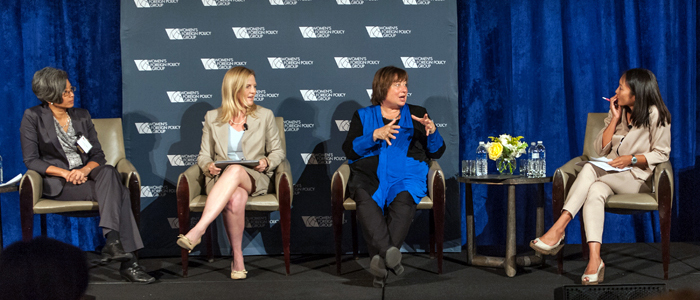
Washington, DC— Under Secretary of State for Economic Growth, Energy, and the Environment Catherine Novelli was the keynote luncheon speaker at the WFPG’s 20th Anniversary Conference. She was joined by Ann Mei Chang, executive director of the US Global Development Lab of USAID, and Astri Kimball, policy counsel at Google, for a panel discussion on “How Are Technology and Social Media Revolutionizing Foreign Policy?” Bay Fang, a Senior Fellow with the New America Foundation, moderated the discussion. Under Secretary Novelli spoke about Internet policy, particularly with regards to access, governance, and security, while the panel discussion covered hacking, the Edward Snowden leaks, the right to be forgotten, Twitter diplomacy, social media and technology usage by extremist groups such as ISIS, the digital divide, and the panelists’ experiences as women in their fields.
In her keynote address, Under Secretary Novelli emphasized the significance of the Internet as an empowering social and economic tool and thus a critical component of any country’s infrastructure. She cited statistics which claim that by 2016 the Internet economy will represent 5.4% of US GDP, with an overall contribution of $4.2 trillion to the G20’s collective GDP. Novelli also stressed the importance of “good policy,” both by government and the private sector, in protecting this resource. She focused on three policy areas in particular: access, governance, and security.
On Internet access, Novelli highlighted the necessity of increasing global Internet connectivity. Currently, three out of every five people worldwide still remain without Internet access. Secretary Kerry recently announced a new State Department initiative to address this. Novelli underlined the gender imbalance of technology access—200 million fewer women than men use the Internet and 300 million fewer women own mobile phones. She praised Nigeria in particular for its initiatives aimed at bridging the information and communications technology (ICT) gender gap and expressed a desire to see more such programs across the developing world.
Novelli also spoke about Internet governance and specifically the importance of a “multi-stakeholder system of governance,” including civil society, the private sector, and governments. She emphasized that Internet governance should be neither be top-down nor bureaucratic in nature. While acknowledging that many governments may wish for more control over or even censorship rights to the Internet, Novelli called for openness and protection for free speech online, claiming that censorship “obviously” would “be the death knell of something that is a free-wheeling and kind of organically growing process.”
Regarding Internet security, Novelli mentioned five key principles aimed at encouraging international cooperation and discouraging any one country’s interference with another country’s cybersecurity. She stressed the importance of “get[ting] everybody on the same page” with regards to Internet policy, with the ultimate aim of protecting and promoting the Internet as an “unparalleled platform [through which] voices from every corner of the global can contribute to political, economic, and social discourse.”
After her remarks, Under Secretary Novelli was joined by Astri Kimbal and Ann Mei Chang for a discussion which covered the Snowden leaks, the “right to be forgotten,” and social media and technology. On the Snowden disclosures, Novelli acknowledged that they have affected the international dialogue on Internet security and privacy; however, she also noted that, with time, the discourse has already broadened, commenting that “The policies that are governing the Internet at large…are much larger than the things that Edward Snowden was talking about. They’re about the very essence of how companies and economies operate. They’re about democracy.” Novelli emphasized the importance of protecting critical infrastructure systems like electric grids and water systems from hacking. Kimball advised that public-private partnerships will be key in addressing hacking, while also pointing out the difficulty of designing a system which allows law enforcement to get in without creating a loophole through which hackers can enter as well.
The “right to be forgotten,” or the right of citizens to request that search engines remove links to pages containing content about their pasts which they deem irrelevant, was passed by the court in the EU last year, causing a problem for search engines. Kimball defended Google’s position, highlighting their efforts to strike a balance between “privacy and freedom of expression and security” and between the free flow of information and “the things that we don’t want to see online—illegal content, violence…and in the case of the right to be forgotten…some stories about us that we don’t want online.” She emphasized that Google’s top priorities include following the law in every jurisdiction and creating a positive user experience through smart policy choices and programs such as YouTube’s Trusted Flagger program.
The panel also discussed social media and technology use, both by diplomats and governments and by extremist groups such as ISIS. Novelli commented on the transition within the State Department from conducting diplomacy on a closed, government-to government basis, to conducting diplomacy in a world opened up by the Internet and social media. On how social media has changed diplomacy, Novelli observed that on the one hand it has forced diplomats and officials to carefully consider their intended message, while on the other hand it has made it more difficult to draw the line with regards to eliminating potential threats posed by statements made online while also maintaining freedom of speech. With regards to ISIS in particular, she emphasized the importance of making “our narrative more compelling than theirs.” Commenting on Google’s work policing this kind of content, Kimball noted that there are a variety of ways to flag or take down content and “every country is going to strike the balance differently.”
Chang spoke about the “digital divide” and using technology to improve the lives of citizens in developing countries, saying, “when we talk about things like the power of social media, we also have to think about the people that are getting left behind.” She used Egypt’s so-called Facebook revolution as an example, pointing out that less than a third of the Egyptian population was actually online at that time, leaving many, particularly women and those in poorer areas, out of the conversation. Chang reiterated Novelli’s emphasis on expanding Internet access as a key pillar to development. In addition, Kimball noted the challenge of making sure that “all of the benefits of technology and science don’t just help the richer, stronger countries get richer and stay stronger.” Kimball mentioned two specific mechanisms through which data and technology are helping vulnerable populations. First, early warning systems for events such as floods and droughts have made a big difference in the arena of disaster preparedness and response. Second, Google Maps, through helping people avoid around a billion hours of traffic annually, has contributed to efficiency and fuel saving around the world.
The panelists also discussed their experiences and challenges as women working in technology. Novelli mentioned that, in negotiations, some thought they could easily “out-tough” her. Speaking of one particular interaction with some Russian munitions manufacturers, she said, “I was seven months pregnant…and they clearly just thought, oh this lady…she’s not going to do anything. And at the end of the negotiation, when we had the deal that we wanted, they came up and…said, you know, we have never met another woman like you, and we’re going home to tell our wives about you.” Kimball pointed out the struggle that the tech industry is having with finding women engineers and emphasized the importance of getting young girls interested in computer science. She also noted the power of the Internet’s “democratizing influence, where girls can have a voice.” Chang, who studied software engineering in college and worked in Silicon Valley for many years, described the subtleties of that male-dominated culture, saying, “if I look at what things are valued in a lot of tech companies, the people who are feted are the men who stay up all night the night before a product is going to launch and fix the last bug, and they’re like the hero, right? And nobody talks about the woman who actually planned ahead and tested her code such that the bug wasn’t there in the first place.” She also described transitioning from male-dominated Silicon Valley to the State Department’s Global Women’s Issues Office, saying, “People would ask me, like, ‘How was your weekend?’ And I’m like, ‘Why are you asking me that?’”
At one point, Chang asserted, “With any technology…there’s always an upside and a downside, and I think the thing that we need to balance is both continuing to fight the downside but not restricting the upside because of it.” Ultimately, throughout the discussion, the speakers emphasized the power of technology and social media, with proper guidance from both the public and private sectors, to revolutionize foreign policy for the better.
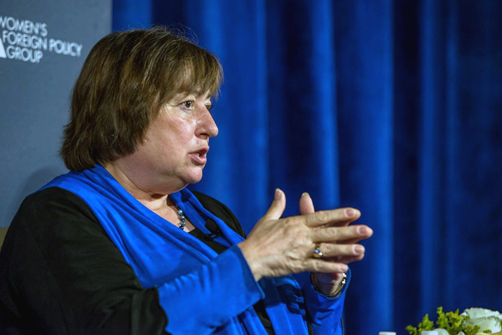 |
 |
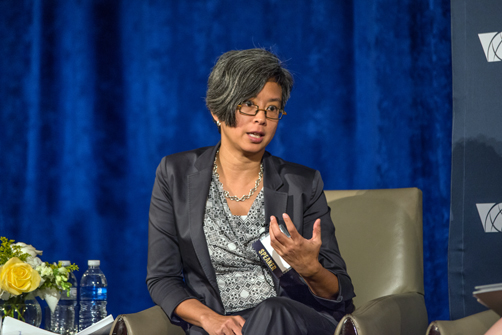 |
Catherine Novelli, Under Secretary of State for
Economic Growth, Energy, and the Environment
|
|
Ann Mei Chang, Executive Director at US
Global Development Lab, USAID
|
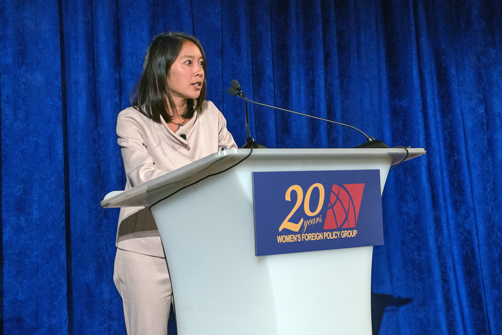 |
 |
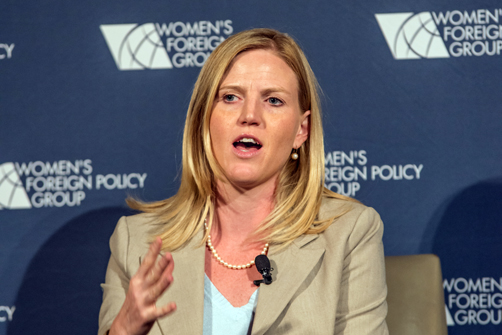 |
Bay Fang, Senior Fellow at New America Foundation
|
|
Astri Kimball, Policy Counsel at Google
|
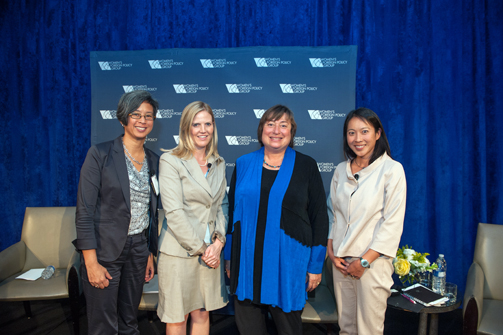 |
 |
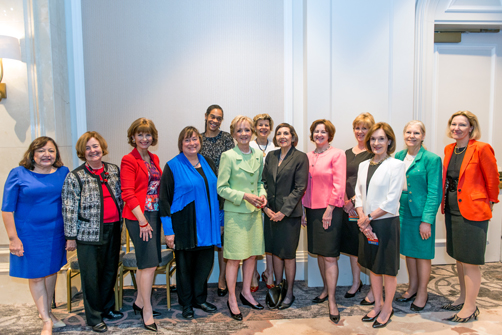 |
Ann Mei Chang, Astri Kimball, Under Secretary Novelli,
and Bay Fang
|
|
WFPG Board Members with Under Secretary Novelli
|
June 10, 2015 | 20th Anniversary Luncheon
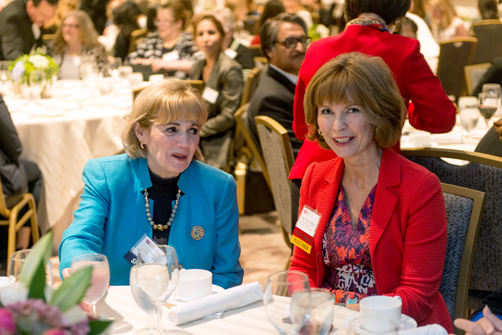 |
 |
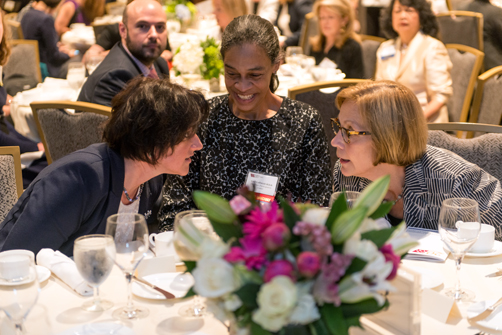 |
Assistant Secretary for Near Eastern Affairs
Anne Patterson and WFPG Board Member
Nancy Ziuzin Schlegel of Lockheed Martin
|
|
Ambassador Réka Szemerkényi of Hungary,
WFPG Board Member Gail Leftwich Kitch, and
Ambassador Ritva Koukku-Ronde of Finland
|
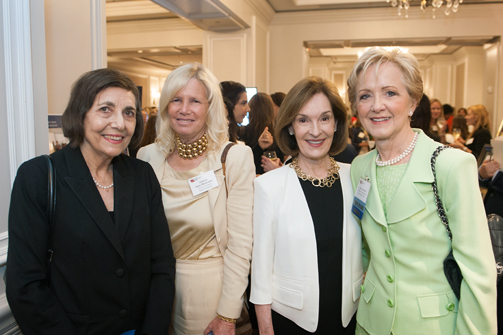 |
 |
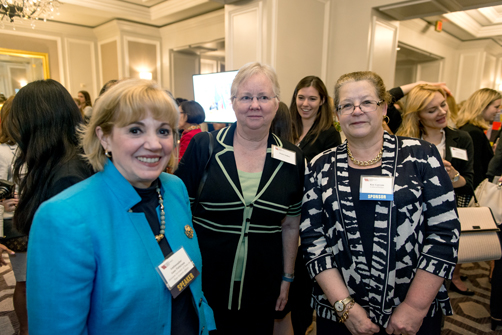 |
WFPG President Patricia Ellis, Admiral Susan Blumenthal,
WFPG Board Member Donna McLarty,
and WFPG Board Chair Ann Stock
|
|
Ambassador Anne Patterson, Diana Sedney, and
Kay Larcom of ConocoPhillips
|
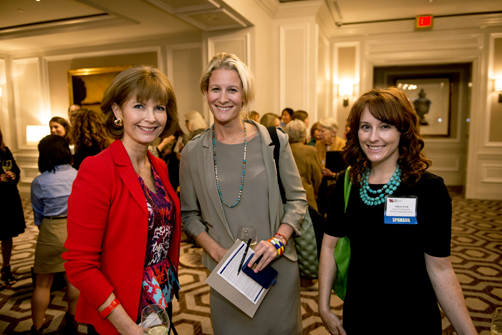 |
 |
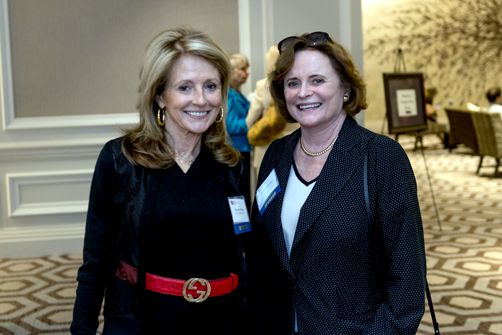 |
WFPG Board Member Nancy Ziuzin Schlegel of Lockheed Martin with Caroline Chewning and Allison Ford
of United Technologies
|
|
Maureen White and Elizabeth Stevens
|
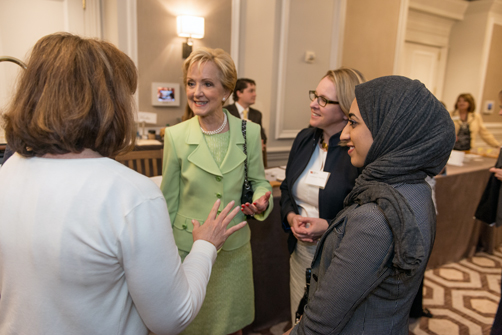 |
 |
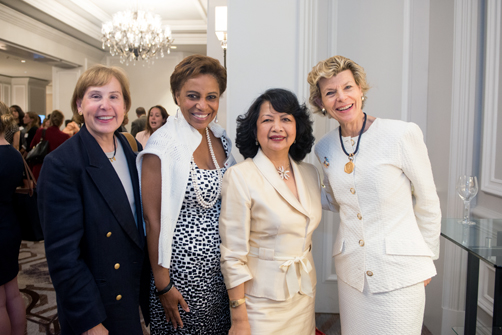 |
Sara Al-Saadi of the Embassy of the State of Qatar and
Ann Stock during the luncheon reception
|
|
Ambassador Linda Jewell, Lauri Fitz-Pegado,
Irene Natividad, and WFPG Board Member
Diana Villiers Negroponte
|
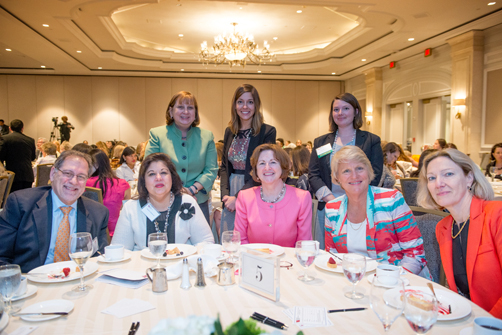 |
 |
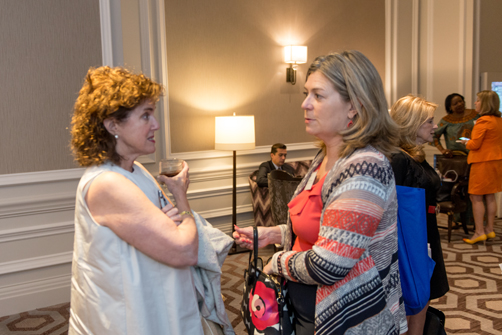 |
Tom McCoy, Shaista Mahmood, WFPG Board Member Theresa Loar, Ambassador Barbara Stephenson, WFPG Board Member Carolyn Brehm, Sue Saarnio, Tawny Chritton,
and WFPG Intern Alumna Erin McGown
|
|
Former WFPG Board Member Donna Constantinople with Michele Manatt
|
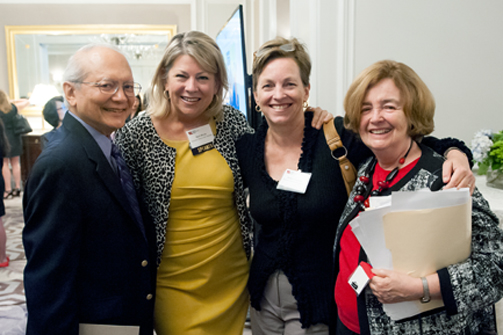 |
 |
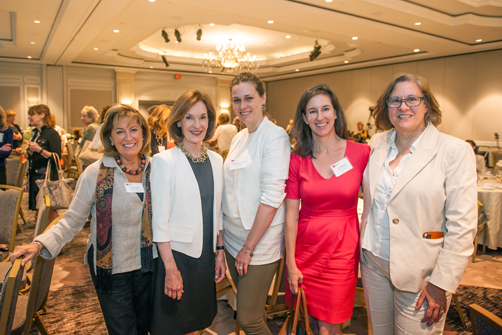 |
Tino Calabia, Shari Bryan, Jackie Corcoran,
and WFPG Board Member Dawn Calabia
|
|
WFPG Board Member Donna McLarty and guests
|
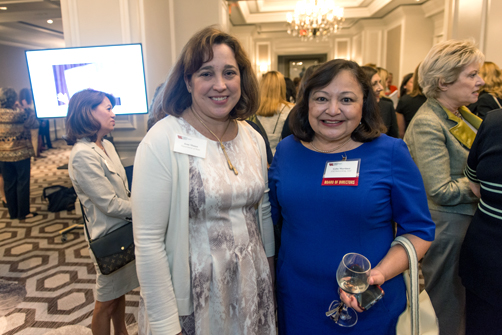 |
 |
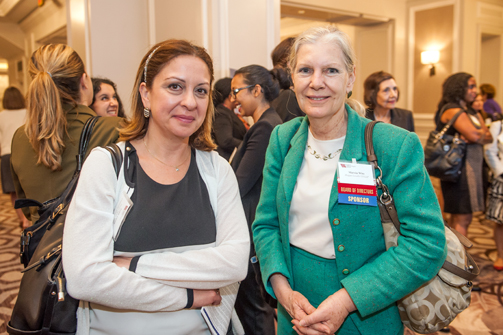 |
Jean Manes of the Department of State and WFPG Board Member Gebe Martinez of GM Networking
|
|
Yelda Guven of ExxonMobil with WFPG Board Member
Marcia Wiss
|
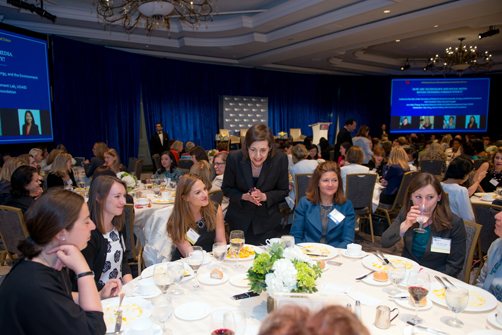 |
 |
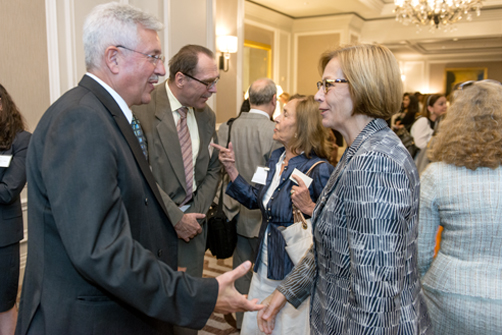 |
Patricia Ellis with Mary Brady, Emily Ball,
and luncheon guests
|
|
Ambassador Martin Dahinden of Switzerland,
Ambassador Dr. Božo Cerar of Slovenia, and
Ambassador Ritva Koukku-Ronde of Finland
|
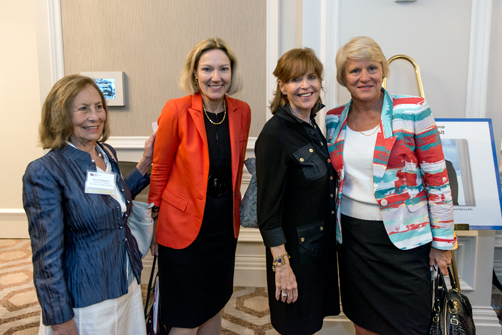 |
 |
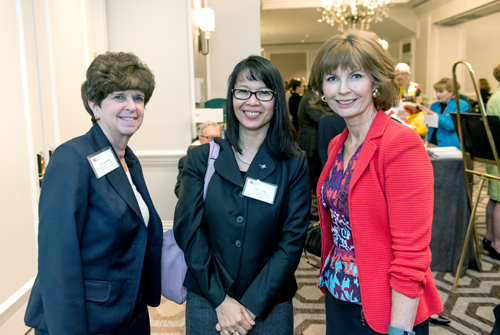 |
Former WFPG Board Member Susan Rappaport,
WFPG Board Member Carolyn Brehm, Susan Davis,
and Ambassador Barbara Stephenson
|
|
Gold Level Sponsor Lockheed Martin: Lori Lindholm, Mary Tung, and WFPG Board Member Nancy Ziuzin Schlegel
|
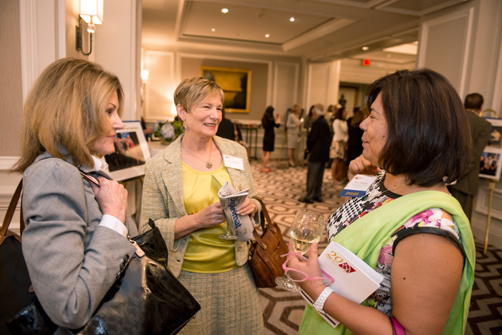 |
 |
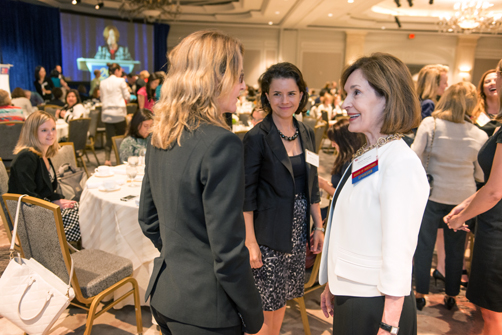 |
Lynn Holec with Maria Montanez of Morgan Stanley
Wealth Management
|
|
WFPG Board Member Donna McLarty and WFPG guests
|
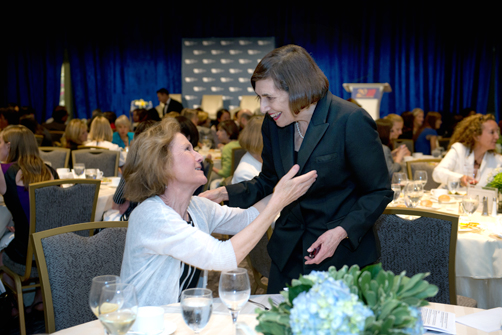 |
 |
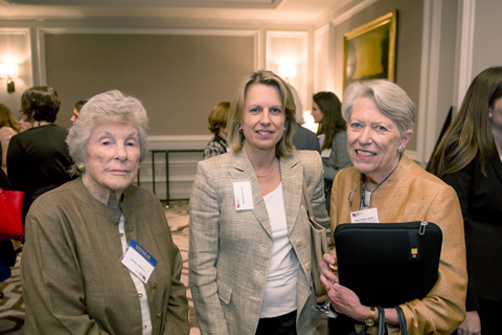 |
Lee Woodman and WFPG President Patricia Ellis
|
|
Cynthia Helms, Darina McKelvie, and Mary Oakes Smith
|
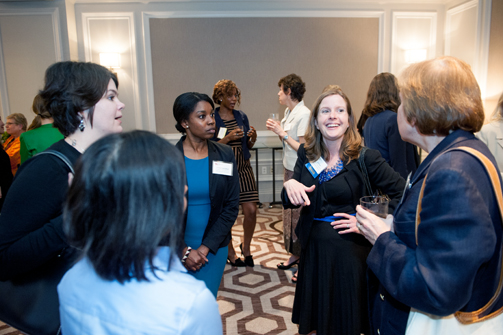 |
 |
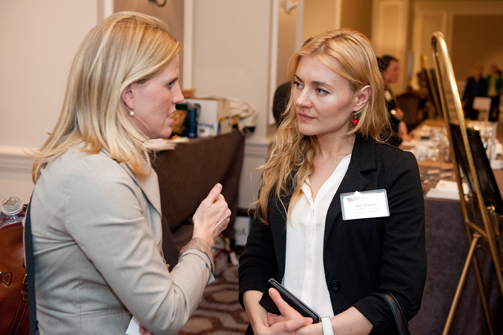 |
WFPG Sponsor Jill Welch of NAFSA and WFPG members and guests during the reception
|
|
Astri Kimball and Alise Krapane
|
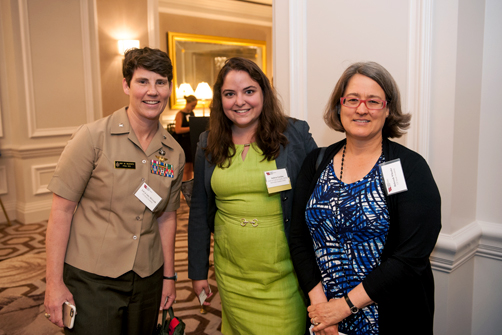 |
 |
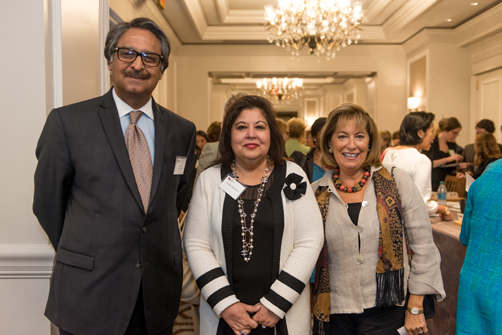 |
LtCol Amy McGrath, Intern alumna Andrea Gordon, and Deborah Wheeler
|
|
Ambassador Jalil Abbas Jilan of Pakistan,
Shaista Mahmood, and Bobbie Greene McCarthy of
Vital Voices Global Partnership
|
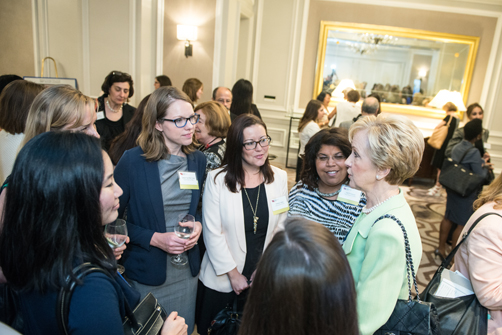 |
 |
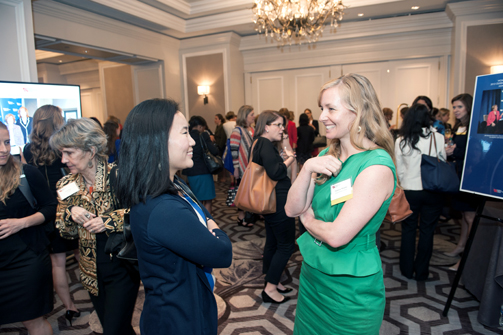 |
Speed mentoring and networking session
|
|
Jennryn Wetzler and with State Department colleague
|
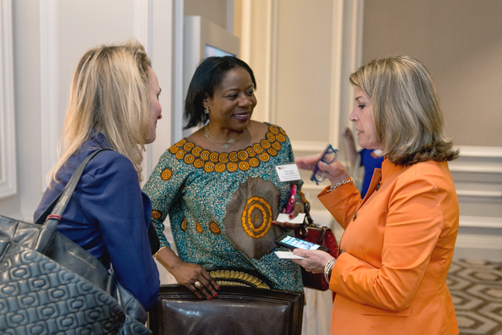 |
 |
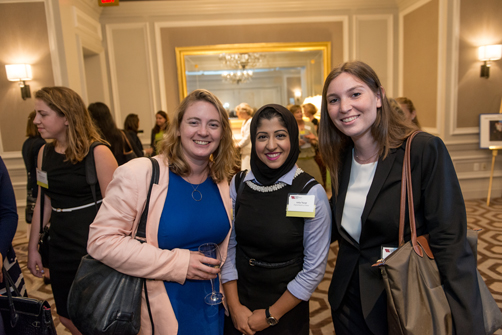 |
Alyse Nelson of Vital Voices Global Partnership,
Ambassador Faida Mitifu of the Democratic Republic of Congo, and Kathleen Matthews
|
|
Intern alumna Elizabeth Sklar with Department
of State Young Leaders
|
|
|